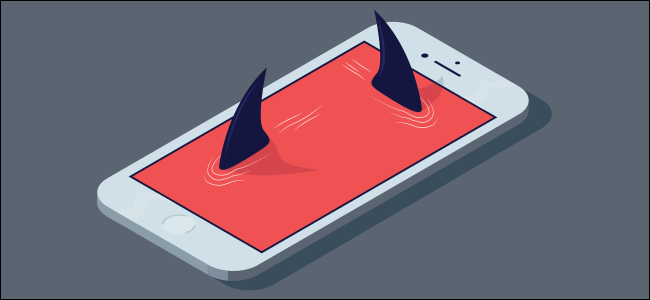Strange as it may seem to you, Google has the ability to install applications remotely on your phone, without your explicit permission or even without any notice.

On June 19, 2021, an event occurred that was quite instructive about the capabilities of the Google company. According to user reports, the exposure notification app in Covid-19, MassNotify was automatically installed on many Android smartphones, in the United States of America, and specifically in the state of Massachusetts.
The strange thing was that the installation was done without any notification and that the app didn't even have icon to inform users that it is installed. The complaint was made on the 9to5Google news site and the company justified that the automatic installation of the application although it was intentional, the application itself would do nothing unless the user chose to activate it.
This is particularly strange because no other US state COVID-19 exposure application works this way. All other applications are installed when the user chooses to install them manually.
Can Google install an application without your permission?
The bottom line is that Google has the ability to install whatever it wants on your phone in a way that you will not understand.
Although we do not know if there is a similar incident in Greece and if Google has ever silently installed an application on Android phones, you can also remotely install an application on your Android phone.
All you have to do is go to the Google Play Store website through a computer, log in to the same account you are connecting to on your Android phone, and once you find an application you are interested in, click the "Install" button. The Play Store will forward the command to your phone and when it hits the internet it will start downloading and installing the app of your choice.
Of course, unlike the history of MassNotify, the whole process is not hidden, as you will see a notification when installing the application.
Can Apple install an application without your permission?
No corresponding behavior of Apple and iPhone phones has been reported. But it is certain that Apple also has this capability.

Also, iPhones work a little differently than Android. To install an iPhone app, you need to go to the App Store with an iPhone and install the app. You can not do this through a browser like you can on Android. You need the presence of your phone. So it is not possible to do a remote installation directly on your phone.
What about updates?
Of course, operating system updates can install new applications on your device. You can install a new version of iOS for iPhone or Android and suddenly find a new application. However, these are always applications of the company itself and are never third party.
Does the behavior of companies change from country to country?
You may be surprised but companies install different programs depending on the country you are in. Or rather the country you have stated you are in. The company, depending on the agreements it has made in each country, but also the legislation of each country, takes care of what you can see and what applications you will have on your mobile phone.
Case in point when in February 2018, MIUI themes for its 28 countries disappeared Europeanof the Union. Although the company did not provide a satisfactory explanation for this, it cited European privacy legislation and the GDPR. Back then all you had to do was tell your phone that you lived in Albania, for example, and the themes app would populate with stuff you could download and install.
Similarly, now if you say on your mobile phone that you live in India, for example, (on Xiaomi with MIUI 12, go to Settings> Additional Settings> Region and enter India there) you will see that not one, not two, but three new applications in the last position. Mi-Picks, Mi-Play, and Mi-Credit. Calories!

The funny thing is that it will not only install new apps but it will notify you that there are new updates of your old apps and ask you to update. Today 24/6/2021 in ours when we stated that the country we live in is India he told us that there are updates for the System, Wallpapers, and Mi-Play!! Once we told him again that we are Greece, all the updates disappeared and he informed us that all our apps are up to date with the latest version! It deleted all three new apps for us.
Can companies delete applications remotely?
Both Google and Apple can delete remote apps from your phone if they choose. This skill was created for protection devices from malware. If a malicious app infiltrates Google Play or Apple's App Store and is downloaded by millions of users, both companies can remotely delete the app.

Google has done so in the past. In fact has removed remotely malicious Chrome extensions from Google Chrome browsers.
In conclusion
It seems that your phone does not belong to you 100%. Probably by buying it, you have "married" the respective company together with its whims. However, instead of asking if a company can remotely install applications on our devices, we should ask if the company we are married to has such a history.
Both Google and Microsoft have installed remote applications on the phones they released at the time without the user's consent. Historically Apple once added a U2 album in the iTunes libraries of all users (regardless of whether one only listens to tsamika).





